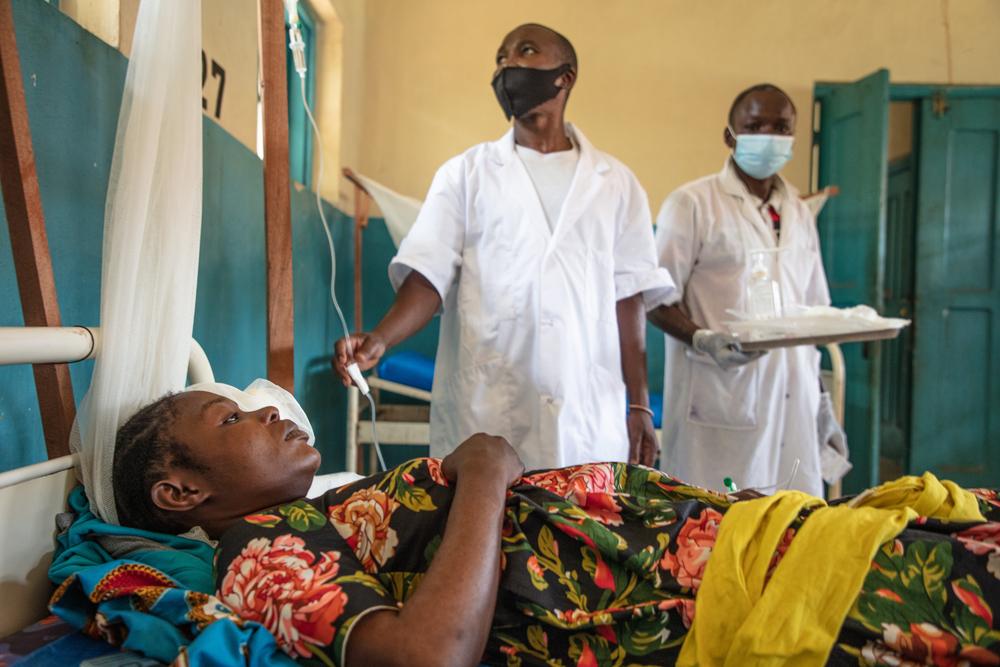Nearly 200 people have died from meningitis since May 2021 and more than 2,000 people have caught the disease in an epidemic in Tshopo province, Democratic Republic of Congo.
A team from Médecins Sans Frontières/Doctors Without Borders (MSF) launched a response in Banalia health zone, 130 km north of the capital Kisangani, when the epidemic was declared in September. The epicentre of the epidemic is Panga, one of 20 areas in Banalia health zone, all of which are affected by the outbreak.
"We arrived in Banalia when the epidemic was confirmed,” says Dr Jean-Pierre Badibanga, MSF’s medical activity manager. “When we first arrived, health workers were mainly performing lumbar punctures to relieve patients’ pain/symptoms. The response was being coordinated by health authorities at Banalia hospital. We set up a meningitis treatment centre in the hospital and focused on strengthening existing capacities.”
Gentillesse, 21, arrived at Banalia hospital suffering from a severe headache, vomiting, fever and a stiff neck, but did not know that these symptoms could be meningitis. "At first, I hesitated to go to the hospital and preferred to stay at home,” says Gentillesse. “There were rumours in our village that it was COVID." Since being admitted to the meningitis treatment centre, Gentillesse’s condition has improved. "I am starting to feel better little by little,” she says. “The nurses are taking care of me and I dare to hope that soon I will get out of bed."
Sabiti, in his fifties, spent five days in hospital being treated for meningitis. "I have been treated and I feel better,” he says. “My health has improved since the day I was admitted. I will share my experiences with those who have doubts about this disease.”
The current outbreak is caused by meningococcus, the most common bacteria responsible for the disease, as confirmed by analysis of samples carried out by the Pasteur Institute in Paris. MSF is working with local health organisations to raise awareness about meningitis among communities in Banalia, giving them information about the disease and encouraging them to seek medical care if they have symptoms.
MSF teams have been treating patients with severe meningitis, including co-morbidities and anaemia, at Banalia hospital since 20 September. As well as the treatment unit, the teams have created systems for disease control and patient flow management and have trained local health staff in treating meningitis. “We provide training to the staff on the treatments to be given, the protocols to be followed and the equipment to be used to provide the best possible relief to patients,” says Dr Jean-Pierre. “We focus on patient follow-up, monitoring and drug administration.”
In order to break the chain of transmission of the disease and stem its spread, the Ministry of Health has launched a vaccination campaign throughout the Banalia area, with technical and logistical support provided by MSF.
